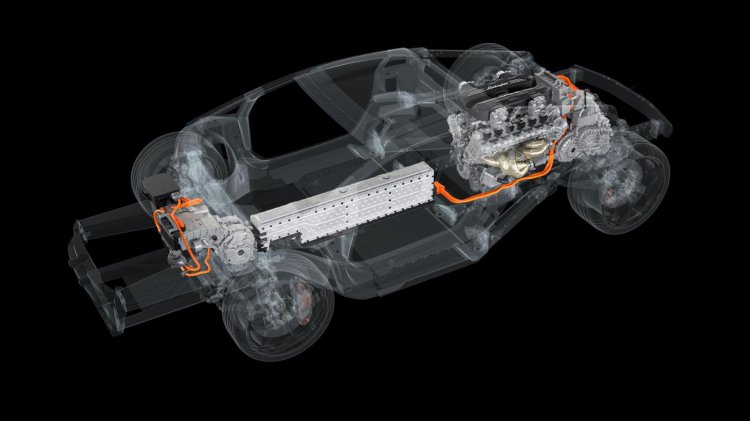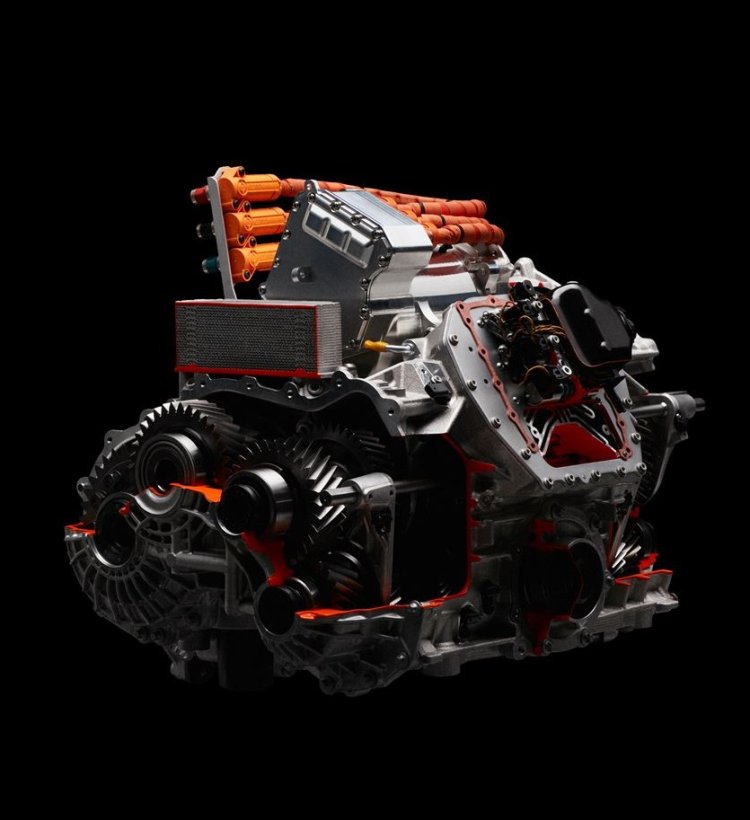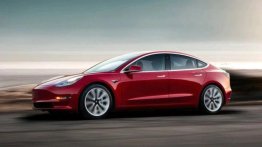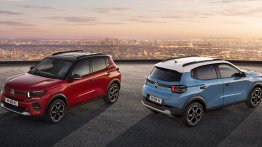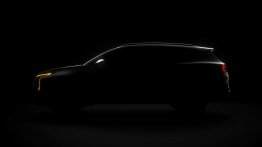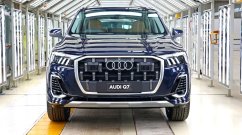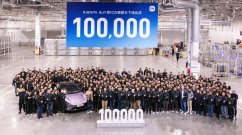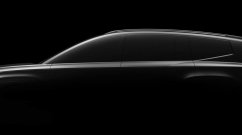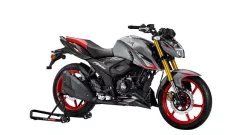Lamborghini has unveiled the first details of the first HPEV (High Performance Electrified Vehicle) hybrid super sports car, codenamed LB744, which will make its debut shortly in the year that Lamborghini celebrates its 60th anniversary.
The new L545 engine has a capacity of 6.5 liters and is the lightest and most powerful 12-cylinder engine ever made by Lamborghini. In total it weighs just 218 kilograms: 17 kilograms less than the Aventador unit. The LB744 features the engine rotated through 180 degrees compared to the Aventador layout. The superquadro V12 puts out 825 CV at 9250 revs per minute thanks to the redesigned distribution system that supports a maximum rev range of 9500 rpm. Specific power is 128 CV per liter, the highest output in the history of Lamborghini’s 12-cylinder engines, while maximum torque is 725 Nm at 6750 rpm.
The LB744 retains one of Lamborghini’s strongest traditions: four-wheel drive. As well as the internal combustion engine that provides power to the rear wheels, a pair of electric motors now make their debut on the front axle, each supplying traction to one of the front wheels. There’s also a third electric motor positioned above the eight-speed double-clutch gearbox that can supply power to the rear wheels, depending on the selected driving mode and the conditions.
The combined torque from the combustion engine and three electric motors offers performance levels that are unique even within the domain of super sports cars, with 725 Nm produced by the internal combustion engine and 350 Nm from each of the front electric motors. In total, the power unit delivers a combined maximum output of 1015 CV.
The two electric motors at the front are oil-cooled axial flux units and offer an exceptional weight-to-power ratio: 18.5 kilograms from each of the 110 kW units. As well as providing power to the front wheels, they also have a torque vectoring function, optimizing driving dynamics, and recuperating the energy produced under braking. When in electric mode, the LB744 is front-wheel drive only to optimize energy consumption, while electric drive to the rear axle is activated on demand when needed.





